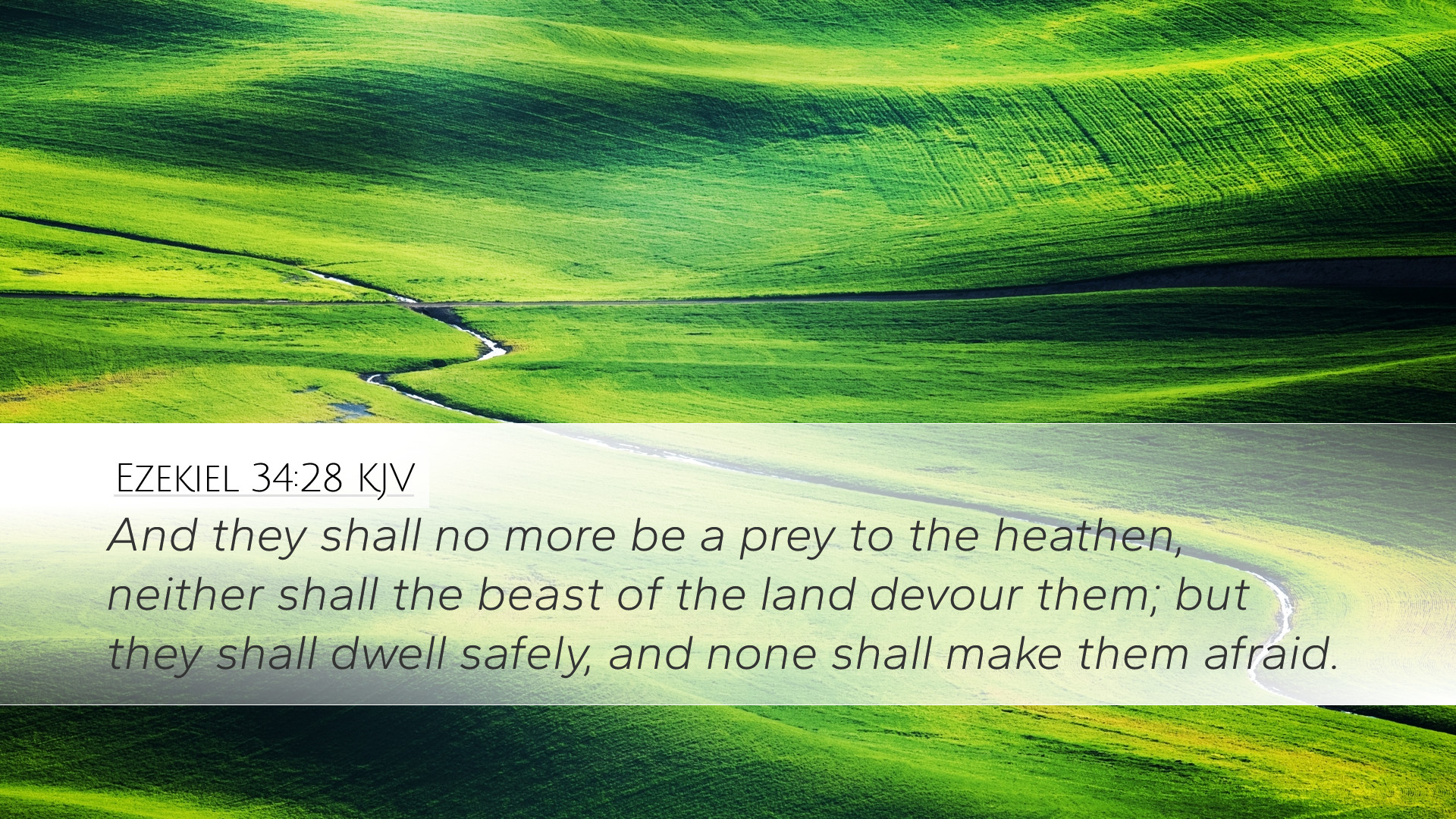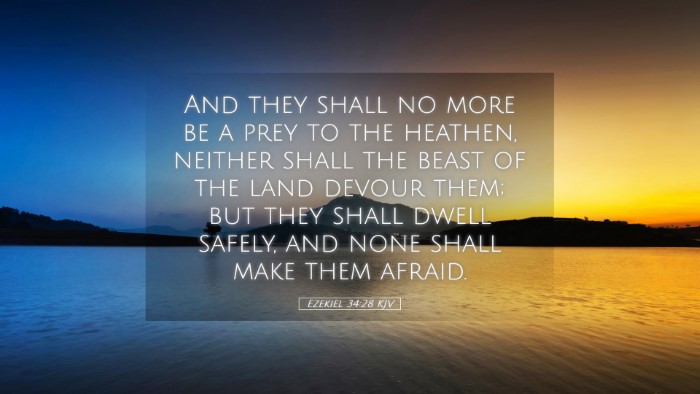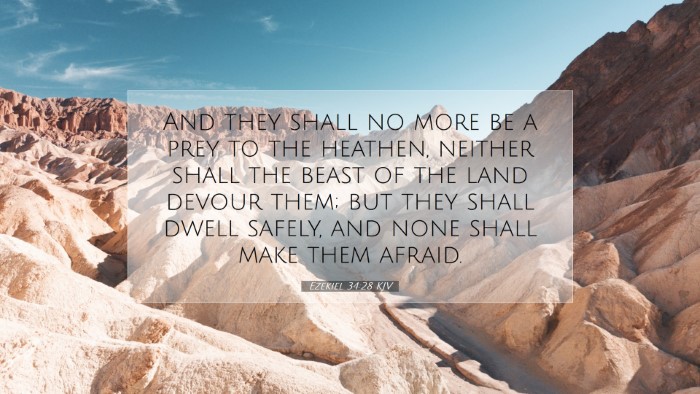Commentary on Ezekiel 34:28
Ezekiel 34:28 (KJV) - "And they shall no more be a prey to the heathen, neither shall the beasts of the land devour them; but they shall dwell safely, and none shall make them afraid."
Introduction
The prophetic book of Ezekiel, addressing the nation of Israel during a tumultuous time, encapsulates God's promises for His people, emphasizing restoration and security. In Ezekiel 34:28, the Lord declares a period of peace and safety, contrasting with the past suffering of Israel under foreign oppression and their own sinful leadership.
This commentary draws insights from respected public domain sources such as Matthew Henry, Albert Barnes, and Adam Clarke to provide a comprehensive understanding of this verse.
Historical Context
Ezekiel prophesies during the Babylonian exile, a period marked by the destruction of Jerusalem and the temple. The people of Israel felt abandoned and lost, subjected to foreign powers. In Chapter 34, Ezekiel portrays God as a shepherd who cares for His flock, contrasting the negligent leaders who have brought about their ruin.
As the chapter unfolds, the imagery of shepherding conveys God's intimate concern for His people, ultimately leading to promises of restoration and security.
Verse Analysis
“And they shall no more be a prey to the heathen” - This phrase signifies a profound shift in the condition of Israel. Henry notes that the restoration implied here is not just material but spiritual. The people will no longer suffer under the tyranny of nations that do not fear God.
- Divine Protection: Ezekiel emphasizes God’s commitment to protecting His people from predators, which in this context represent hostile nations.
- End of Vulnerability: This promise signifies a future where God's people are secure and flourishing, using imagery that suggests complete safety and lack of fear.
Theological Insights
The promise of safety and security in Ezekiel 34:28 speaks to God's overarching covenant faithfulness. In addressing the fear and vulnerability of His people, we see a reflection of God's nature as a protector.
1. The Nature of God as Shepherd: Clarke reflects on the shepherd motif, pointing to God’s desire to nurture, guide, and protect. It shows God's active participation in the lives of His people, guiding them away from harm.
2. The Fulfillment in Christ: Barnes connects this verse to the New Testament, suggesting the ultimate fulfillment of this promise through Christ, who brings peace to the hearts of believers, thus securing them from eternal peril.
Practical Applications
This verse, while rooted in historical context, has practical applications for believers today. It reassures us of God's continuous presence and providence in the face of adversity.
- Trust in God’s Protection: Believers are invited to place their trust in God as their protector, especially in times of distress.
- Understanding His Care: Just as God cared for His people then, He continues to care for His people today, encouraging us to seek His security in personal and communal struggles.
- Hope and Restoration: This promise serves as a reminder that restoration is a key theme in the Christian faith, providing hope amidst present challenges.
Conclusion
Ezekiel 34:28 encapsulates a promise of divine protection and care that resonates throughout Scripture. Through the insights of Matthew Henry, Albert Barnes, and Adam Clarke, we gain a fuller understanding of how this verse speaks to the heart of God’s redemptive plan.
As we reflect on this passage, may we be assured of our identity as God’s flock, recognized by our need for a shepherd, and comforted by the knowledge that we are eternally secure in His care.


